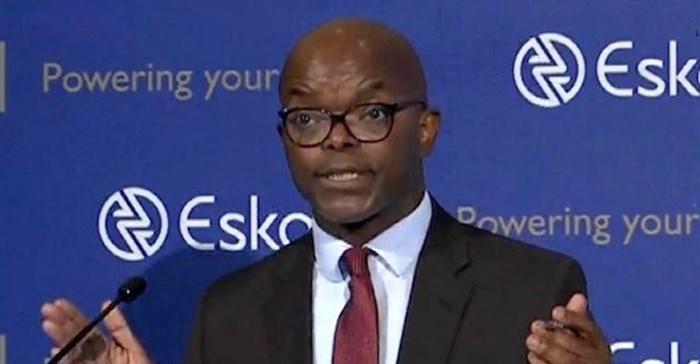Even if the country remained committed to long-term coal-fired energy in a world rapidly transforming to green energy, it would have difficulty finding investors to build the infrastructure, said Phakamani Hadebe Eskom chief executive at the National Utility Week and Powergen Africa conference in Cape Town.

Eskom chief executive, Phakamani Hadebe
“The world is changing and it’s changing fast. The energy sector is not isolated unless we endorse and adopt to that changing world we will be left behind," he said, adding that South Africa aims at progressively reducing its coal usage to 30% of the country’s share of energy needs by 2040.
Given that the Eskom’s ageing fleet is due for decommissioning, investment decisions need to be made to meet the 1,500GW required for a growing economy. In addition, Hadebe said, global investors have indicated that they won’t fund coal, as have South Africa’s Big 4 banks.
“We need to make a concerted effort for off-grid solutions and transformation of the traditional model through emerging technologies.”
One area of concern is the volume of water used to produce power. “Eskom uses about 2% of South Africa’s fresh water, which is very high. We intend to reduce this through dry cooling. This has dramatically reduced the utility's water use from 2 l/kWh to 0.14 l/kWh in recent years. “Medupi and Kusile may have their own problems but they have the biggest dry cooling in the world,” he said.
Regional cooperation
He emphasised the importance of regional cooperation, such as the Southern African Power Pool (Sapp), to reduce the power generation costs.
Hadebe pointed out that South Africa sources 1,200MW of electricity from the Cahora Bassa hydroelectric power scheme through its power supply partnership with Mozambique. When the lines of supply were disrupted by Cyclone Idai, South Africa was plunged into Stage 4 load shedding overnight, emphasising the need for alternative sources of power.
“A much more integrated regional power grid needed to be created, and a more conducive environment was required to be able to attract development finance institutions to finance new energy infrastructure,” Hadebe said.


















